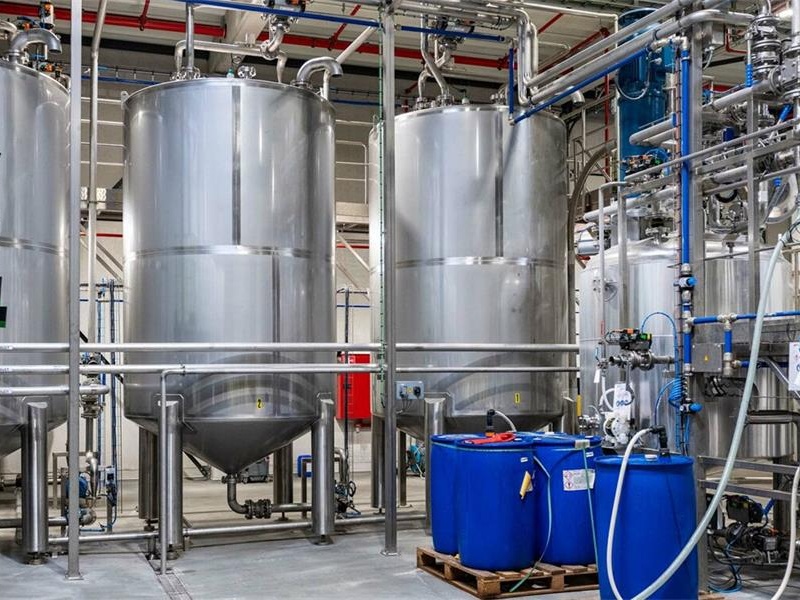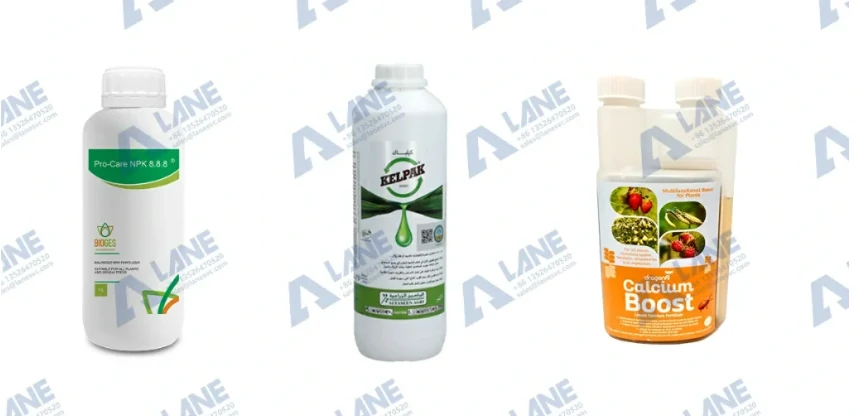
Learn all about liquid fertilizer production, from the process to benefits and applications
Liquid fertilizer production is a key aspect of contemporary agricultural practices, which focuses not only on maximizing crop yields but also on optimizing nutrient uptake efficiency and minimizing environmental impact. Understanding the nuances of liquid fertilizer production is essential to continuously improving agricultural productivity and agricultural benefits.
Liquid fertilizers, unlike traditional granular or powdered fertilizers, are nutrient solutions that are easily absorbed by plants through their roots or leaves. They typically contain macronutrients and micronutrients essential for plant growth, such as nitrogen (N), phosphorus (P), potassium (K), and various minor elements such as calcium, magnesium, and sulfur.

The composition of liquid fertilizers varies depending on the target crop and soil conditions. Major nutrients such as nitrogen support plant growth, phosphorus aids root development and flowering, and potassium enhances the overall health and disease resistance of the plant. Minor nutrients and micronutrients play key roles in enzyme activation, photosynthesis, and nutrient metabolism in plants.
Liquid fertilizers offer several advantages over solid fertilizers, primarily that nutrients are quickly absorbed by crops. Liquid fertilizers can be precisely applied through irrigation systems or foliar sprays, ensuring even distribution and minimizing nutrient waste. In addition, liquid fertilizers can be tailored to specific nutrient deficiencies or soil pH imbalances, optimizing crop yield and quality.
Liquid fertilizers are produced in a variety of formulations to meet the nutrient needs of different crops and growth stages. Single nutrient solutions provide targeted doses of specific elements, ideal for correcting nutrient deficiencies or supplementing existing soil fertility levels. Complex blends combine multiple nutrients in balanced proportions to provide comprehensive nutritional support for high-yield agriculture and specialty crops. Formulas specifically designed for foliar application enhance nutrient absorption through direct leaf absorption, bypassing soil nutrient barriers and ensuring rapid plant response to nutrient deficiencies.
The production of liquid fertilizers involves a complex process from raw material sourcing to final product formulation and packaging. Raw materials such as ammonium nitrate, urea and potassium chloride undergo rigorous quality checks to ensure the purity and consistency of the nutrient content. Formulation technologies include chemical dissolution, biosynthesis or organic extraction methods, depending on the desired nutrient content and application requirements. Mixing technologies such as mixing tanks, agitators and homogenizers help to thoroughly dissolve and suspend nutrients in water or organic solvents, ensuring a uniform and stable product distribution.

Key equipment for liquid fertilizer production includes mixing tanks, pumps, dual filter and packaging units, which can handle a variety of production scales and formulations. Efficient spray systems enable precise fertilization during field operations, minimize chemical drift and optimize crop nutrient uptake. Storage facilities equipped with temperature and humidity control ensure product stability and shelf life, which is essential to maintain nutrient integrity and efficacy over a long period of time.

Liquid fertilizers are widely used in traditional and professional agricultural practices, including field crops, horticulture, greenhouse cultivation and hydroponics. They provide flexibility in nutrient delivery methods, allowing targeted soil or foliar fertilization based on crop-specific nutrient needs and growth stages. In commercial agriculture, liquid fertilizers can increase crop productivity, improve soil fertility, and support sustainable agricultural practices by reducing nutrient loss and soil erosion compared to traditional fertilization methods.
The benefits of liquid fertilizers are not only improved nutrient utilization and increased crop uptake efficiency, but also include operational advantages such as reduced labor costs, increased application accuracy, and improved crop uniformity. Their compatibility with irrigation systems and foliar spraying equipment helps to apply nutrients in a timely manner, optimize resource utilization, and maximize agricultural productivity. Seasonal and crop-specific formulations meet different agricultural needs, providing customized solutions to achieve optimal yield, quality, and profitability of agricultural production.
The future of liquid fertilizer production depends on changing consumer demands, technological innovations, and global agricultural trends. Expected developments include expanding the use of digital agricultural solutions for precision nutrient management, enabling real-time monitoring of soil and crop conditions to optimize fertilization. Driven by consumer preferences for sustainable agricultural practices and environmentally friendly products, bio-based and organic liquid fertilizers are expected to gain favor. Innovations in nutrient delivery systems, including biostimulants and microbial inoculants, have the potential to improve soil fertility, crop resilience, and nutrient use efficiency, supporting agroecological farming approaches.
Regulatory advances and industry standards will play a key role in shaping the future landscape of liquid fertilizer production, emphasizing product safety, environmental sustainability, and supply chain transparency. Collaborative research programs and public-private partnerships will drive innovation in nutrient management strategies and foster resilient agricultural systems that can adapt to climate change and changing market dynamics. As the global population grows and food security challenges intensify, the role of liquid fertilizers in promoting efficient resource use, reducing agricultural inputs, and mitigating environmental impacts will become increasingly important.
For more details, please feel free to contact us.
Henan Lane Heavy Industry Machinery Technology Co., Ltd.
Email: sales2@lanesvc.com
Contact number: +86 15515885328
Whatsapp: +86 15515885328
Leave a Comment
LANE has more than 500 successful cases and is committed to providing customers with first-class solutions, high-end machinery and equipment, and one-stop pre-sales, sales and after-sales comprehensive customer service.